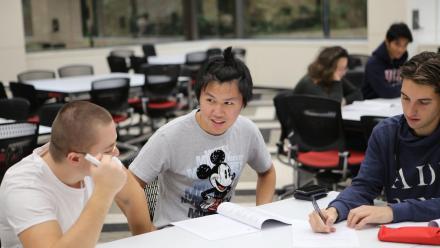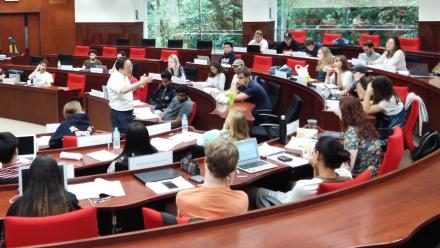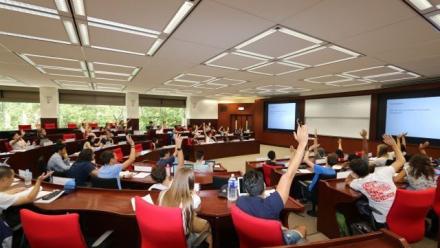In the previous week, students examined the concept of Representation, Elections and Voting with a particular focus on the two electoral systems: Majoritarian System and Proportional Representation System. Students understood that different electoral systems would have different impacts, with both advantages and disadvantages. On Week 3, students continued to explore another basic concept of politics – Party Systems.
Starting with a series of non-party examples, Dr. Maekawa made a concise definition of party and introduced its functions: serving as agents of the people. With the voting rights, citizens could vote for their preferred parties, and with the Parties having impact on governmental procedures, it will reflect the public's preference. Ideally, party competition could encourage parties to better represent the will of their supporting citizens.
By means of today’s case discussion, students were guided to discuss the party competition as seen in Japan and Great Britain, in terms of causes and consequences. By comparing the two situations in Japan and Great Britain, students are able to analyze whether party competition could lead to a better government. As a result, students understood how actual policies are formed through party competition. While different countries would have different party systems, such as one party system, two party system or multiple party system, this lesson is important for students to rethink the political situations in various countries under different systems, and their various impact on the daily lives of citizens and how their preferences are being represented.

 Download
Download
 Infosession
Infosession
 Application
Application
 Open Campus
Open Campus










